We go southward from Datong by taxis we specially bargained for this journey. Our first stop is at the hanging monastery. What an idea to build a monastery inlaid in the cliff ? The field below was perhaps too flat and too horizontal ?
The result is striking. Anyone would think a stone chopper fell down a temple and only half the temple stuck on the blade. The temple tour lasts a short time and in order to avoid problems of tourists crossing at several 10 meters high, we must follow the good way. From the temple, we even more realize the difficulty of its building.








The next stop is the wooden pagoda Mu Ta. 97 meters high, an impressing height for this kind of building when you know that not a nail was hammered to erect it.








We finally arrive at Taihuai, laid-back village nested down the Wutaishan valley, terminus of our journey. The Wutaishan is one of the 5 chinese Buddhist sacred mountains. The pilgrims searching for an "inside peace" lose their way among the throng of tourists poured by hordes of brand new buses. Despite the crushes and the colony of Chinese tourists, we can discover a few tranquility-favourable secluded spots. The village gathers about 15 temples and monasteries offering a great diversity of architectures and atmospheres. Discovering it on foot plunge us into this Buddhist culture. We cross the Tayuan temple, the Xiantong temple, the Luohou temple and the Guangren temple. Looking at the pictures is more digestible.























Keyword - buddhist atmosphere -
Wednesday 1 August 2007
Buddhist stroll in the Wutaishan sacred mountain
By dorian on Wednesday 1 August 2007, 19:06 - RTW-China
Monday 30 July 2007
The 50000 buddhas of the Yungang caves
By dorian on Monday 30 July 2007, 00:47 - RTW-China
Here we are, all the family arrived for a one-month trip in China. In the public transport that takes us to Liuliqiao bus station, Chinese people are puzzled to look at a band of heavy-equipped foreigners traveling in this kind of transport. The bus station is brand new with an huge waiting hall. They sell the tickets at the first floor and the ground floor is worthy of an airport. The passengers comfortably wait in front of the boarding gate.
Towards Datong, in the Shanxi province. A 3-million small Chinese town. When we get off the bus, taxi drivers bustle about. One of them drops us off in front of a hostel and offers us to take off our rucksacks in the room and to rush at the Yungang caves, registered in the World Heritage list, 20km from Datong. We're OK for the trip.
In the distance, we contemplate a short cliff, slightly eroded by cavities. In fact, these orifices are grottoes where each square centimeter was carved in. Tourists can visit about thirty caves which contains the bewildering number of 50000 Buddhas.
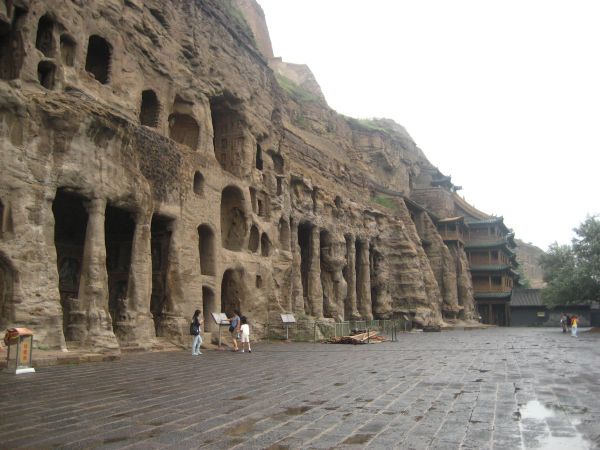
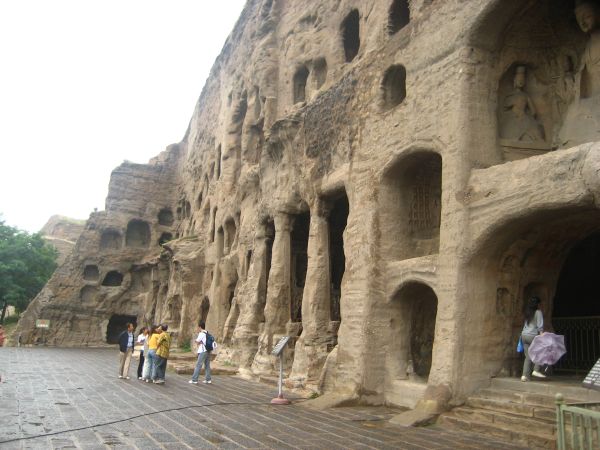
From a few centimeters to several meters, the potbellied character is carved in all its forms. The sculptors' overzealousness dedicated at the generosity of Buddha culminates in the caves n°5 and n°6.
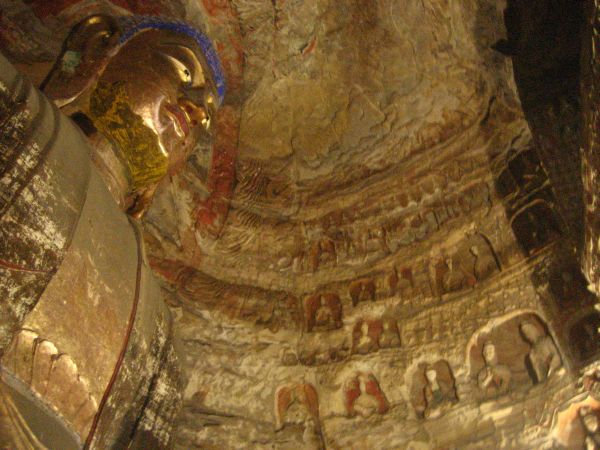
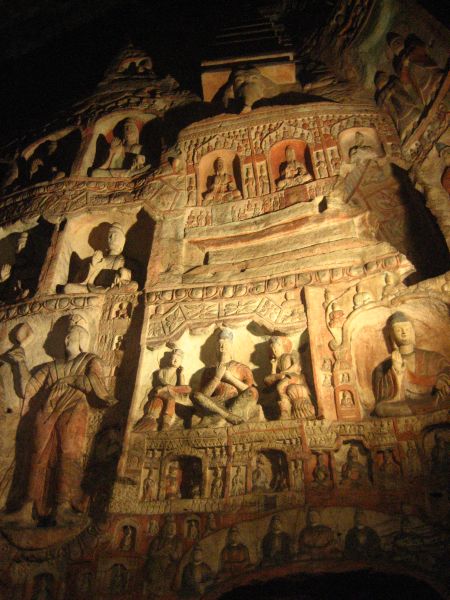

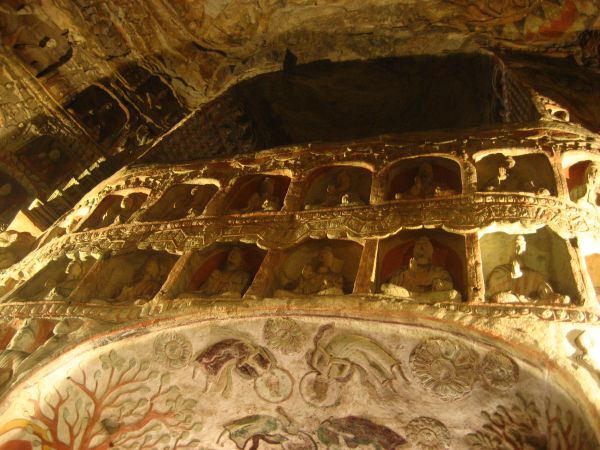
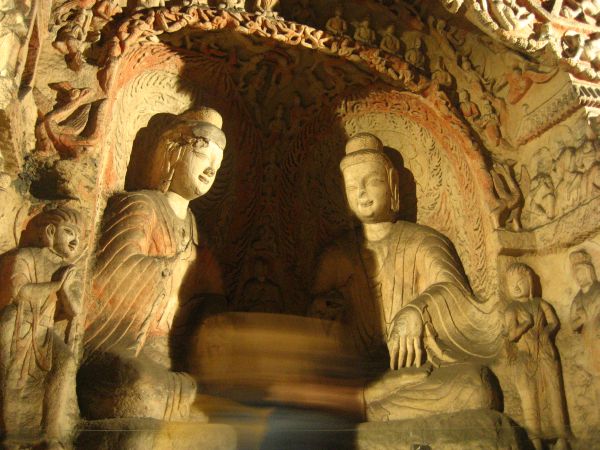
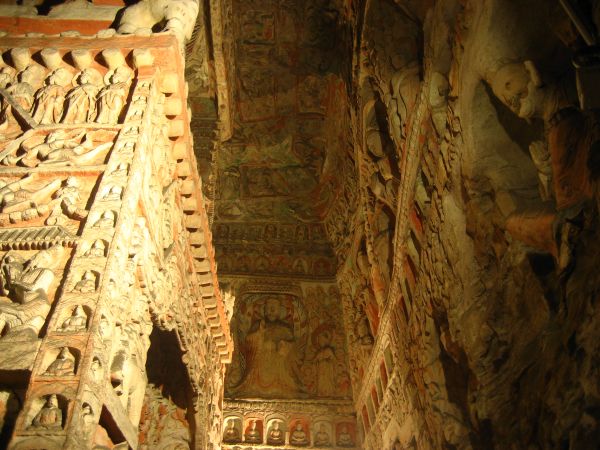
The look clings to the details, to colorful reliefs, smiles in front of the ingenuity used bey the sculptors to fill the spaces. In each cave, a patchwork of icon-like Buddhas carpets all the infractuosities, encircling an altar of stone or a main Buddha, proportionally sized to the cave dimensions.
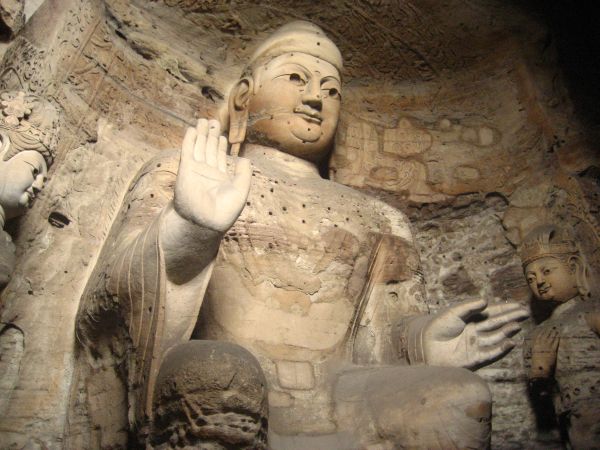
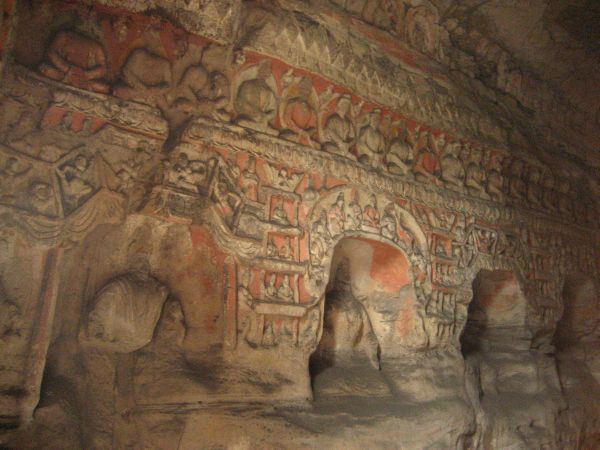
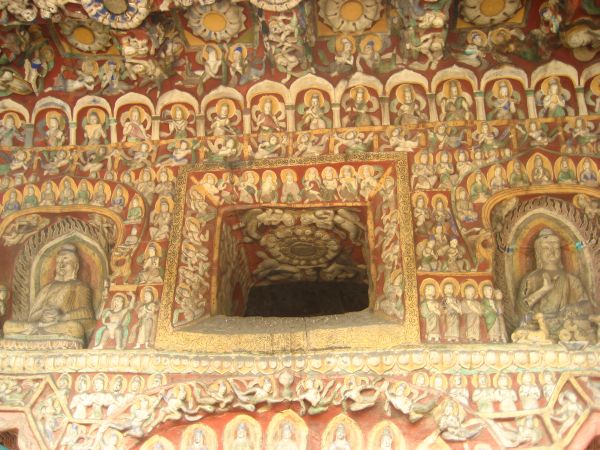
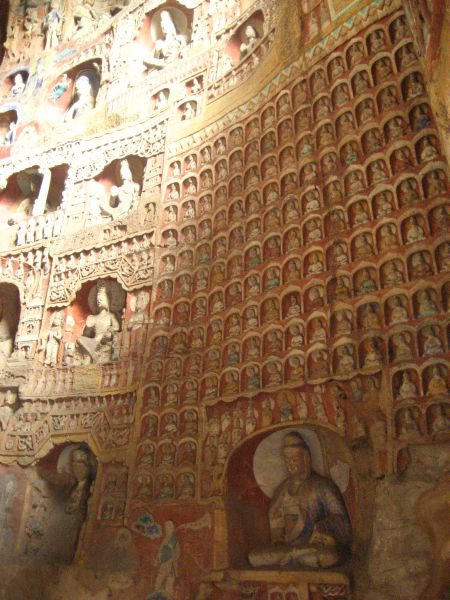
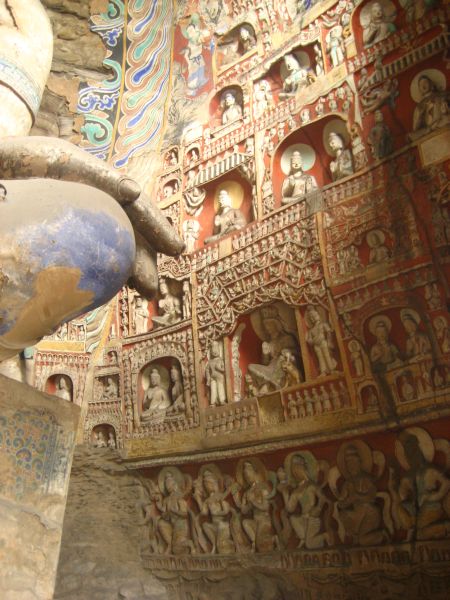

Friday 27 July 2007
The outer temples of Chengde
By dorian on Friday 27 July 2007, 00:30 - RTW-China
From the Dongzhimen bus station, you can reach the northwestern destinations of Beijing. Not easy to find the way between the minibuses, local buses and long-distance buses. Hookers offer a day trip to the China Great Wall ; a young Chinese explains us the Chengde bus leaves in half an hour and we must wait. It's a minibus which stops several times to fill all the seats up, consequently delaying the journey. The 4-hour initial journey get longer to 3 hours. When we arrive in the afternoon, our time is precious since we planned to go back the next day to step on the Great Wall. We choose a hooker that offers a cheap downtown hostel and inside the taxi, we arrange with the driver to take us to the outer temples of Chengde.
The imperial gardens and the outer temples in the suburbs of the city concentrate the tourists. We opt to sacrifice the first place of interest for the second one and rush at the Puning temple. This foothill-built staggering temple takes on white and brick red shades. A few buddhist monks meditate while the tourists feed their curiosity and fill themselves with positive energy walking into the maze of this peace haven. The main temple containt a 42-arm mind-boggling buddha. The statue is imposing and radiant in spite of the cut-off perspective due to the architecture itself of the temple.
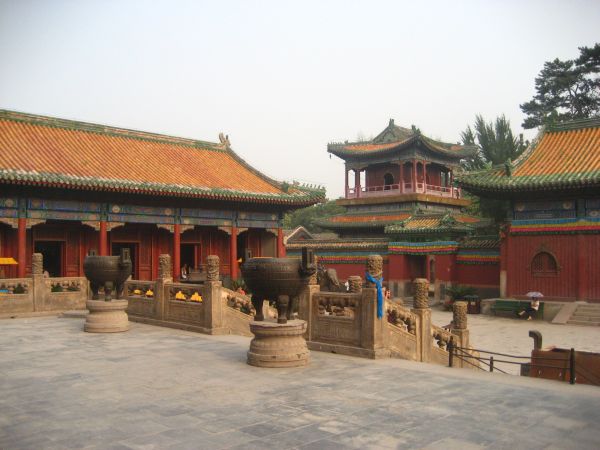
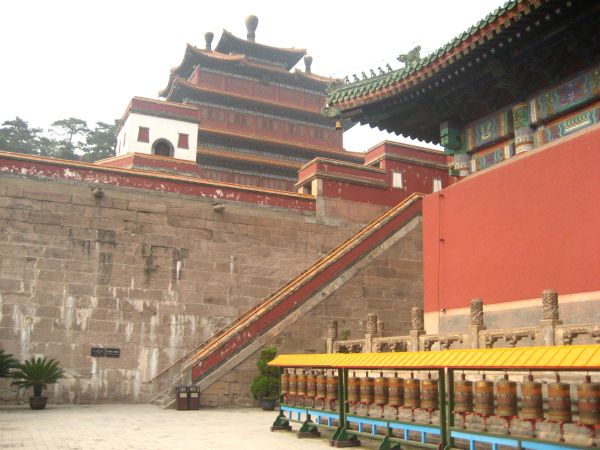
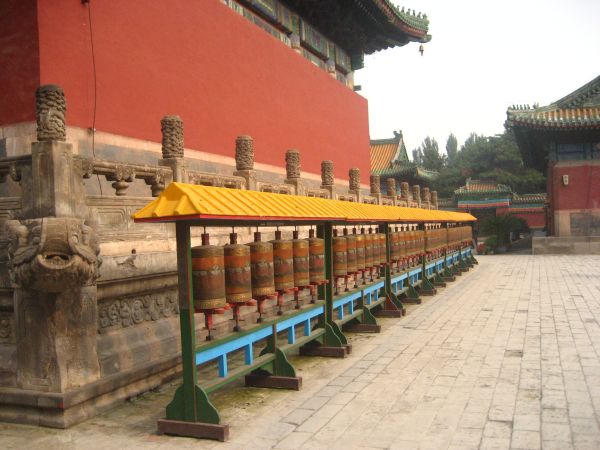
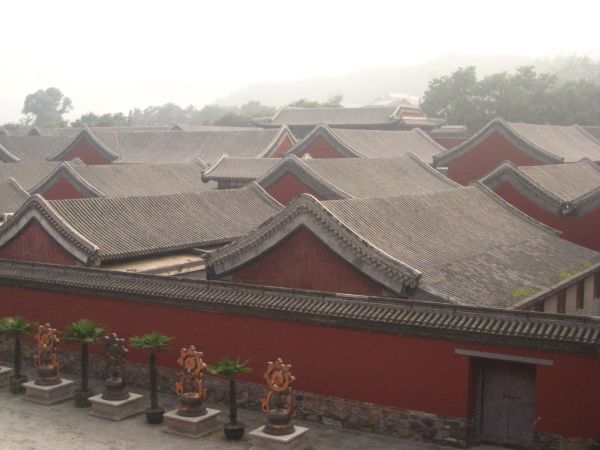
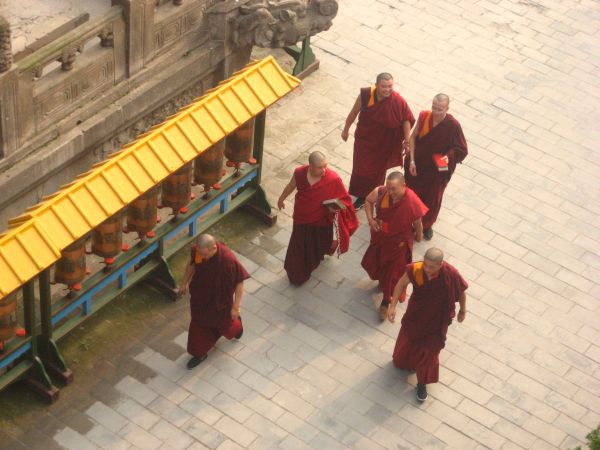
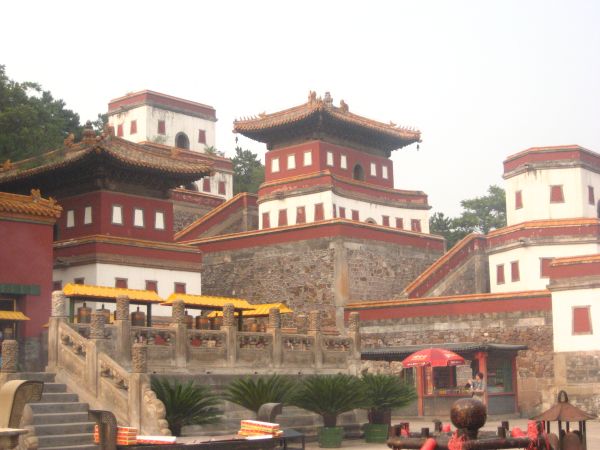
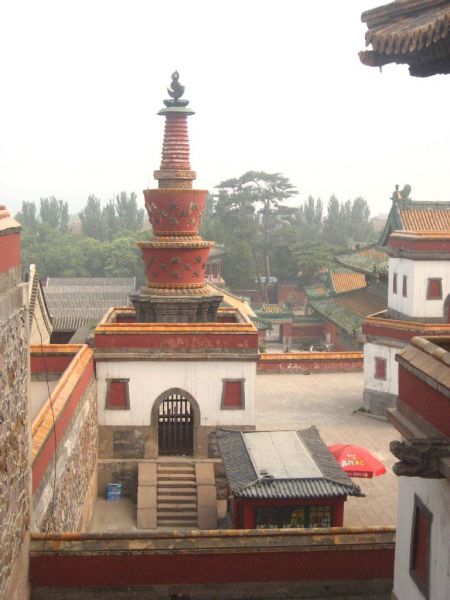
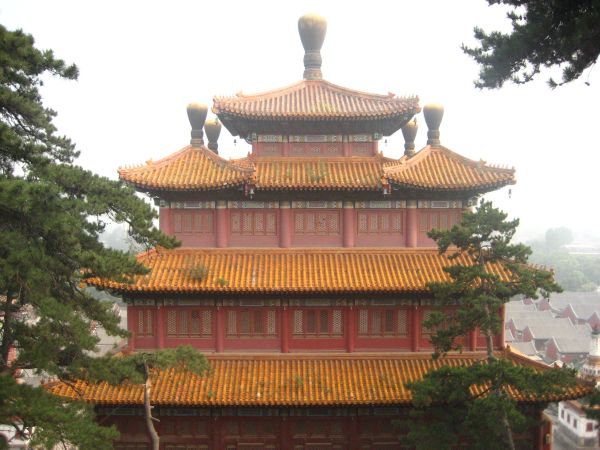
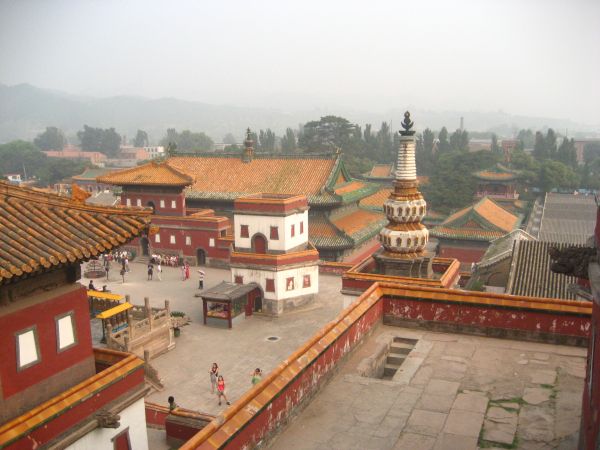
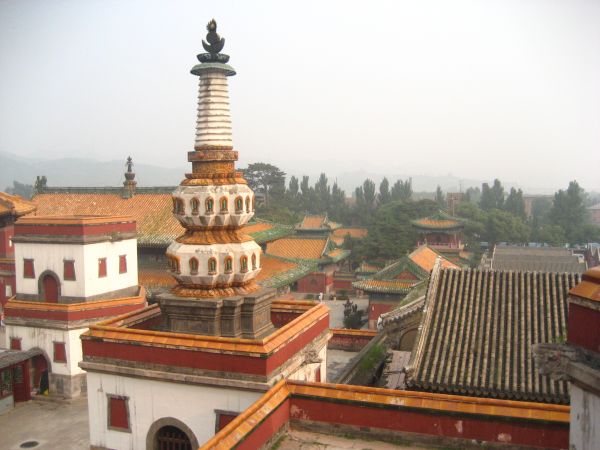
Then, we head for the Putuo Zongcheng temple, hoping to visit it despite the the late time. On the way, we get by the Xumi Fushou temple whose forms draw their roots in the Shigatse temple.
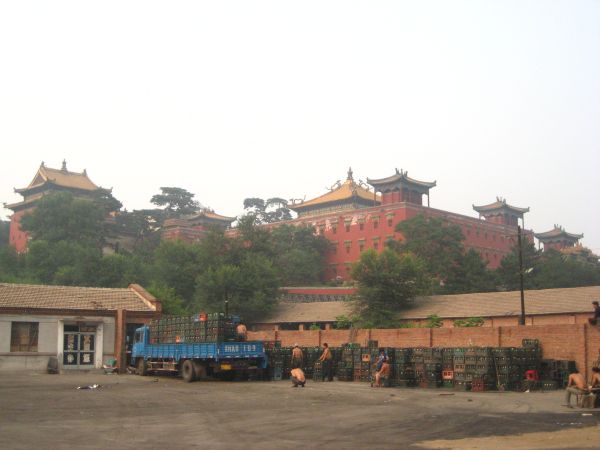
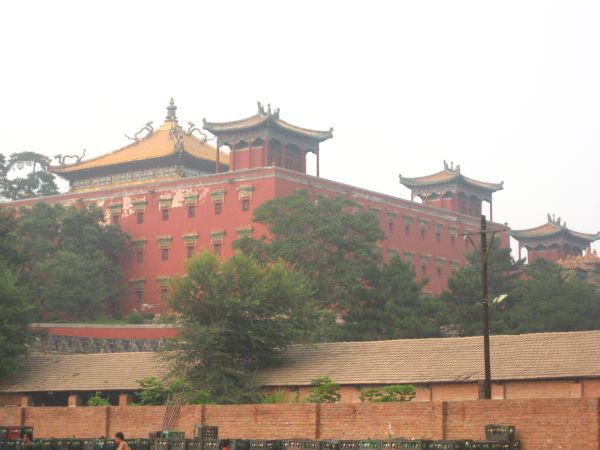
The next complex is inspired by the Dalai-lama's residence, the Potala located at Lhassa. We get in the largest temple in the city of Chengde ; a path goes round a sacred building, rises, and dies at the bottom of the palace. A staircases sequence leads up to the roof. Its thick walls shelter a courtyard. The architecture of this courtyard contrasts with the austerity and the geometric lines of the palace front.
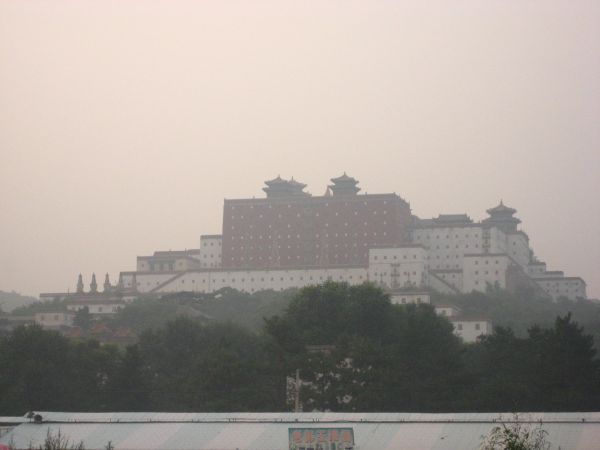
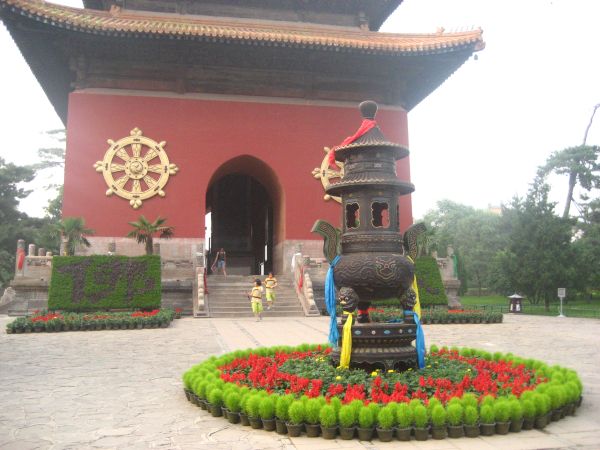
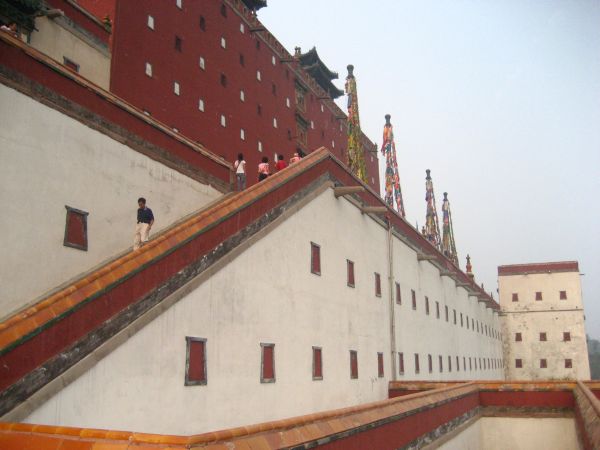
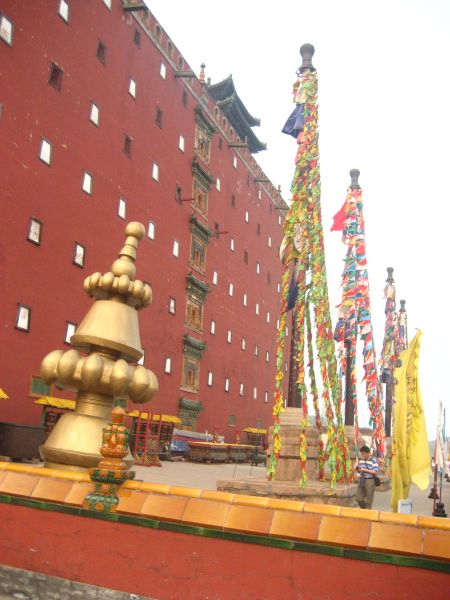
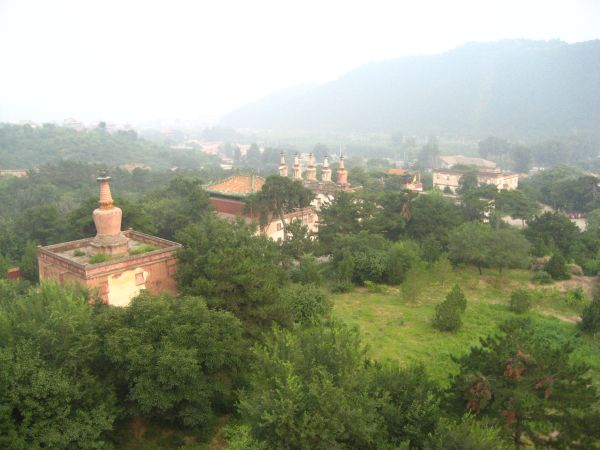
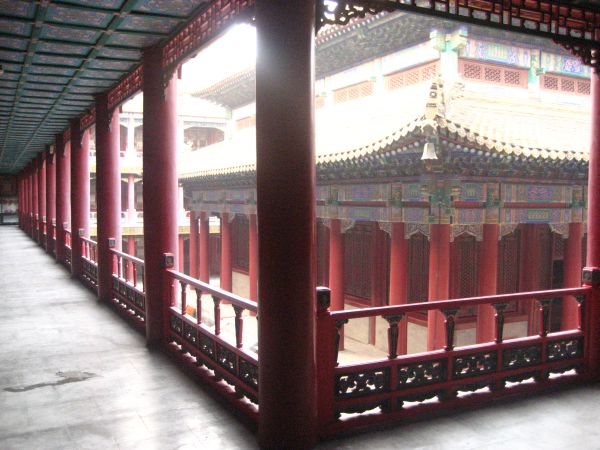
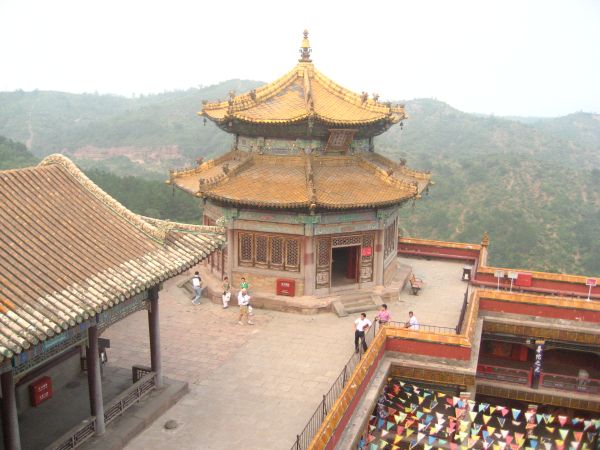
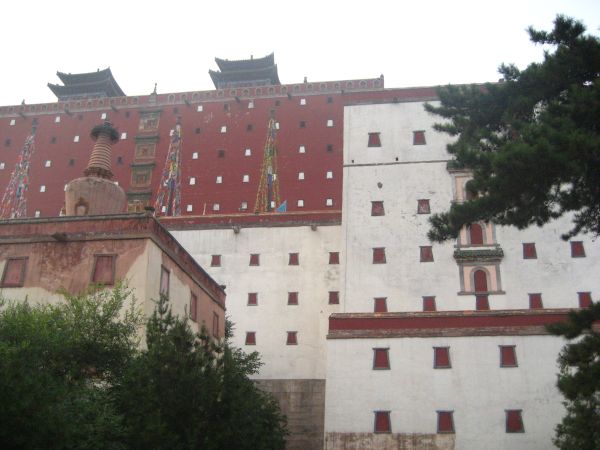
page 3 of 3 - next entries »


